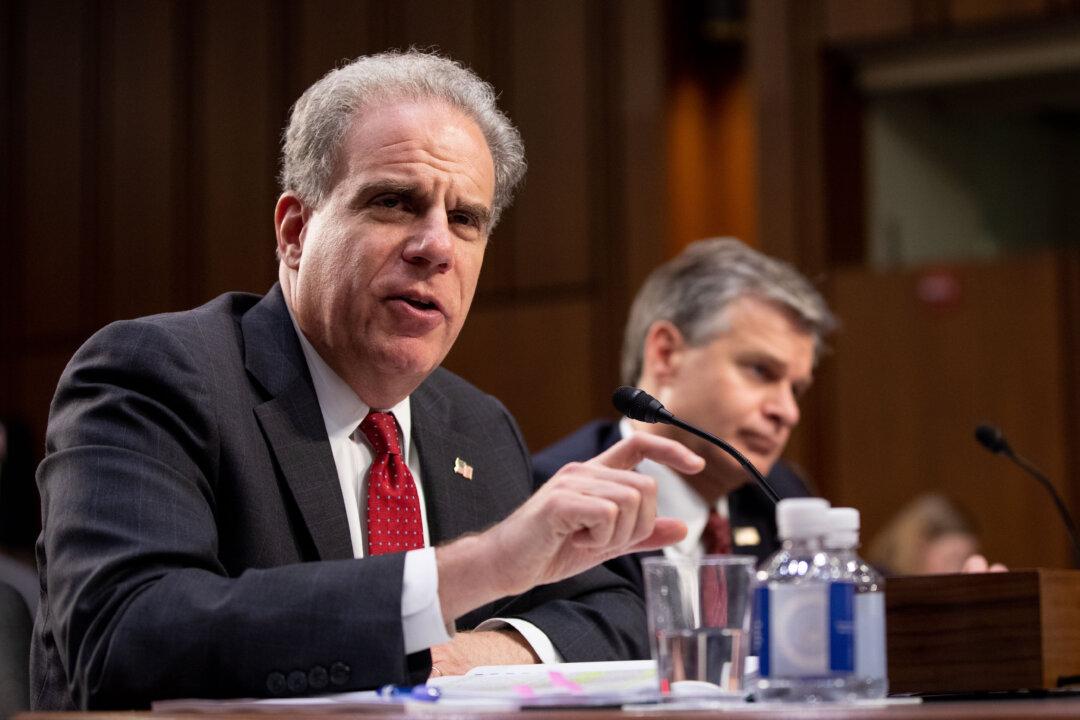Inspector General Michael Horowitz found that the four warrant applications to spy on Trump campaign associate Carter Page contained 17 significant errors, according to a report released on Dec. 9.
“We identified at least 17 significant errors or omissions in the Carter Page FISA applications, and many additional errors in the Woods Procedures,” the report states, referring to the procedures guiding the verification of claims in the Foreign Intelligence Surveillance Act (FISA) applications.





